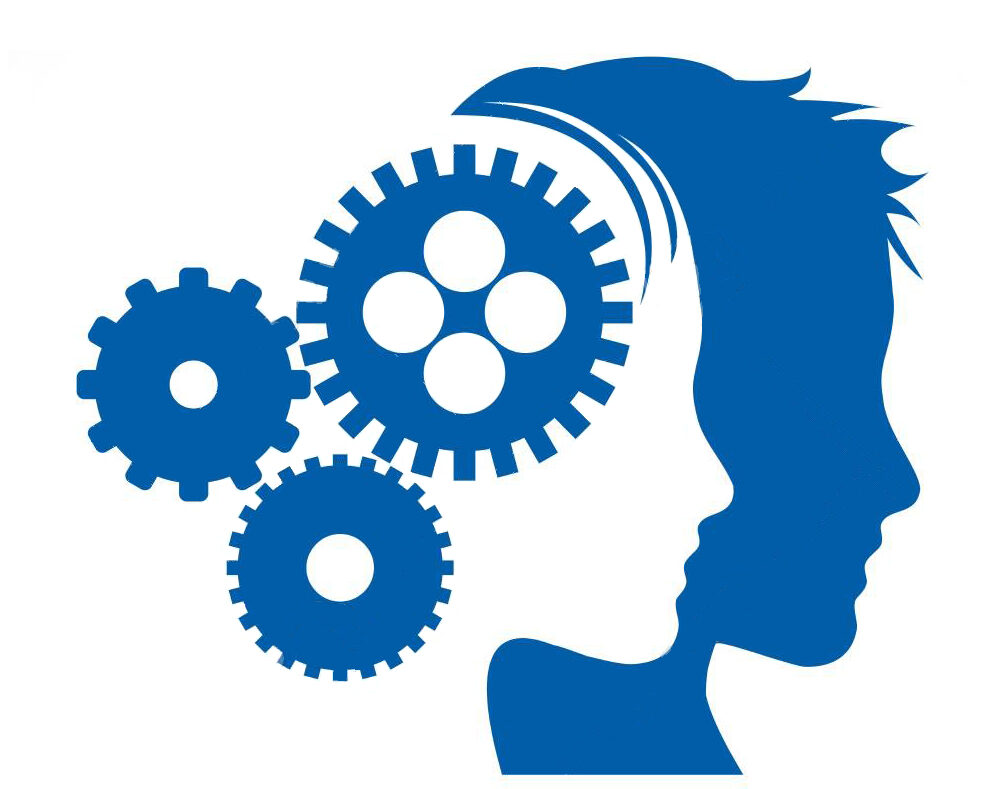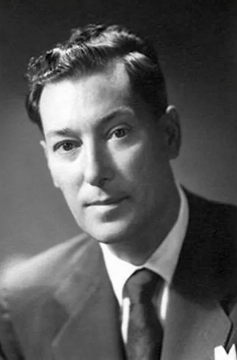Imagine a world where every decision you make has the potential to shape your future. A world where the power of choice lies in your hands, empowering you to create the life you desire. In this article, we will explore the significance of choice, how it can transform our lives, and the key to unlocking its full potential. Whether it’s a small decision that affects our daily routine or a life-altering choice that alters our path, understanding the power of choice is the key to unlocking a world of endless possibilities. So, grab a seat and prepare to embark on a journey of self-discovery as we delve into the profound impact of choice in our lives.

The Meaning of Choice
The concept of choice
Choice is a fundamental aspect of human existence. It refers to the ability to select between different options or make decisions based on personal preferences. From the moment we wake up in the morning until we go to bed at night, we are constantly faced with choices. Whether small or significant, the choices we make shape our lives and determine our experiences. The concept of choice implies that we have the power and freedom to shape our own paths and make decisions that are aligned with our desires and values.
The importance of choice
Choice holds immense importance in our lives. It is through the act of choosing that we express our individuality and exercise our autonomy. Without choice, we would be mere passive participants in our own lives, subject to the whims and decisions of others. Choice empowers us to take control and responsibility for our actions, allowing us to shape our own destinies. It is through making choices that we define who we are and what we stand for. Each choice we make has the potential to create a ripple effect, influencing not only our lives but also the lives of those around us.
The impact of choice
The impact of choice extends beyond the immediate consequences of our decisions. Our choices have the power to shape our thoughts, emotions, and behaviors, ultimately determining the quality of our lives. They can create opportunities for growth, fulfillment, and personal happiness. Conversely, poor or uninformed choices can lead to dissatisfaction, regret, and missed opportunities. The impact of choice is multifaceted, influencing various aspects of our lives, including our relationships, careers, and overall well-being. Therefore, it is essential to recognize the significance of choice and make intentional decisions that align with our values and goals.
Factors Influencing Choice
Personal preferences
Personal preferences play a significant role in shaping our choices. We all have unique tastes, interests, and desires that guide us in selecting one option over another. Whether it is choosing what to wear, what to eat, or how to spend our free time, our personal preferences strongly influence our decision-making process. These preferences are shaped by our individual experiences, personalities, and values, and they provide us with a sense of identity and self-expression. Recognizing and honoring our personal preferences allows us to make choices that resonate with who we truly are.
Values and beliefs
Our values and beliefs act as guiding principles when making choices. They represent what is important to us and what we prioritize in life. Our values and beliefs shape our moral compass, influencing the decisions we make in various situations. For example, if we value honesty and integrity, we are more likely to make choices that align with these principles. Our values and beliefs can also evolve and change over time, as we gain new insights and experiences. Being aware of and in alignment with our values helps us make choices that are congruent with our innermost desires and contribute to a sense of authenticity and fulfillment.
Societal and cultural influences
We are not isolated beings, and the choices we make are influenced by the society and culture we live in. Societal norms, expectations, and cultural values shape our perceptions of what is acceptable, desirable, or appropriate. These influences can manifest in various ways, such as career choices, lifestyle decisions, or even beliefs and attitudes. We may feel compelled to make certain choices based on societal pressures or conform to cultural expectations. However, it is important to critically evaluate these influences and ensure that our choices are authentic expressions of our own values and desires, rather than merely conforming to external norms.
Benefits of Making Conscious Choices
Increased self-awareness
Making conscious choices requires self-awareness. It involves taking the time to reflect on our values, preferences, and priorities before making a decision. This process of self-reflection allows us to gain a deeper understanding of ourselves and what truly matters to us. As we become more in tune with our inner thoughts and emotions, we can make choices that are genuinely aligned with our authentic selves. Increased self-awareness also enables us to recognize any biases or limiting beliefs that may influence our decision-making process, allowing us to make more informed and intentional choices.
Improved decision-making skills
Making conscious choices cultivates our decision-making skills. It requires us to evaluate options, weigh pros and cons, and consider the potential consequences of our choices. Through this process, we become more adept at analyzing information, assessing risks, and thinking critically. Improved decision-making skills not only lead to better choices but also enhance our problem-solving abilities and overall effectiveness in navigating life’s challenges. By actively engaging in the decision-making process, we develop the confidence to make informed choices and take ownership of the outcomes.
Enhanced personal growth
Conscious choices can catalyze personal growth and transformation. Each choice we make presents an opportunity for learning and growth. By consciously choosing to step out of our comfort zones, embrace new experiences, or challenge ourselves, we open the door to personal development and expansion. Making choices that align with our values and aspirations pushes us to evolve and become the best version of ourselves. Additionally, the process of making intentional choices allows us to take control of our lives, leading to a greater sense of empowerment and fulfillment.
The Connection Between Choice and Freedom
Choice as a fundamental human right
Choice is intertwined with the concept of freedom. It is considered a fundamental human right, essential for the expression of autonomy and individuality. The ability to choose is a cornerstone of democratic societies and is protected by numerous laws and regulations. From the right to vote to the freedom to pursue one’s passions and beliefs, choice is a fundamental aspect of human existence. It allows us to determine our own destinies and shape the societies we inhabit. The recognition and protection of the right to choice are crucial for the flourishing of individuals and communities.
The relationship between choice and personal freedom
Choice and personal freedom go hand in hand. Personal freedom is the ability to act and make decisions without undue constraints or limitations. When we have the freedom to choose, we have the power to exercise control over our lives and determine our own paths. Our choices enable us to express ourselves, follow our passions, and pursue our aspirations. They grant us the autonomy to live in accordance with our values and desires. Personal freedom is both a prerequisite for choice and a result of it, as each choice we make expands our sense of freedom and self-determination.
The paradox of unlimited choice
While choice and freedom are highly valued, the abundance of choices available to us can sometimes lead to paradoxical effects. In a world saturated with options, the sheer number of choices can become overwhelming and burdensome. The paradox of unlimited choice refers to the phenomenon in which an excess of choices can lead to anxiety, decision fatigue, and dissatisfaction. With too many options to consider, we may struggle to make a decision or fear making the wrong choice. This paradox highlights the importance of making conscious choices and narrowing down our options to those that truly matter to us.

The Role of Choice in Personal Happiness
Choosing happiness
Choice plays a pivotal role in our pursuit of happiness. While external circumstances may influence our well-being to some extent, it is ultimately our choices that determine our levels of happiness. We have the power to choose our attitudes, perspectives, and responses to life’s challenges. By choosing to cultivate gratitude, foster positive relationships, and engage in activities that bring us joy, we can enhance our overall happiness. Making choices that are aligned with our values and passions allows us to create a life that is fulfilling and meaningful to us.
Finding meaning and purpose through choices
Choosing a life of meaning and purpose is deeply fulfilling and rewarding. Our choices shape the direction our lives take and the impact we have on the world. By deliberately making choices that align with our values and contribute to a greater purpose, we can find a sense of fulfillment and deep satisfaction. Whether it is choosing a career that makes a positive impact, volunteering for a cause we believe in, or making environmentally conscious choices, each decision can contribute to a life of meaning and leave a lasting legacy.
The impact of regret on happiness
The choices we make can lead to either happiness or regret. Regret arises when we look back on a choice and feel a sense of disappointment, wishing we had chosen differently. While some degree of regret is inevitable in life, making conscious choices can help minimize the likelihood of experiencing deep regret. By carefully considering our values, priorities, and long-term goals, we can make choices that align with our true selves. When we make choices that are in accordance with our authentic desires, we are less likely to experience regret and more likely to find lasting happiness.
Overcoming the Fear of Making Choices
Identifying and understanding fear
Fear often stands in the way of making choices. The fear of making the wrong decision, the fear of change, or the fear of the unknown can paralyze us and prevent us from taking action. To overcome the fear of making choices, it is important to first identify and understand the underlying fears. By examining our beliefs and acknowledging the emotions that arise in relation to decision-making, we can gain clarity on the specific fears that hold us back. Understanding our fears allows us to address them consciously and move forward with courage and confidence.
Approaches to overcoming fear
Overcoming the fear of making choices requires courage and a willingness to embrace uncertainty. One approach is to practice reframing our perspective on fear, viewing it as an opportunity for growth and self-discovery rather than a threat. We can also seek support from trusted friends, family members, or mentors who can provide guidance and encouragement. Another effective approach is to start small and gradually expose ourselves to decision-making situations. By incrementally facing our fears and making choices, we build resilience and confidence, making it easier to tackle more significant decisions in the future.
Embracing uncertainty and learning from choices
Uncertainty is an inherent part of life, and the choices we make can never guarantee a specific outcome. Embracing uncertainty is essential for overcoming the fear of making choices. Instead of striving for a sense of control or certainty, we can approach decision-making as an opportunity for growth and learning. Each choice we make provides valuable feedback and lessons, regardless of the outcome. When we view choices as opportunities for self-discovery and personal development, we can embrace the inherent uncertainty and make choices from a place of curiosity and exploration.

The Consequences of Avoiding or Ignoring Choice
The cost of indecisiveness
Avoiding or ignoring choice comes with its own set of consequences. Indecisiveness can lead to missed opportunities, stagnation, and a lack of progress. When we refuse to make choices, we relinquish our power and agency, allowing life to happen to us rather than actively participating in it. Indecisiveness often stems from fear or a desire to avoid responsibility or potential negative outcomes. However, the cost of indecisiveness is often greater than the potential risks involved in making a choice. By recognizing the consequences of indecision, we can find the motivation to confront our fears and move forward.
The dangers of surrendering choice to others
Surrendering our choice to others can have detrimental effects on our autonomy and well-being. When we allow others to make decisions on our behalf, we relinquish our personal freedom and agency. This can lead to a sense of resentment, dissatisfaction, and a loss of self-confidence. While seeking advice and guidance from others can be valuable, it is important to remember that the ultimate responsibility for our choices lies with us. By actively participating in the decision-making process and taking ownership of our choices, we regain our personal power and cultivate a sense of empowerment and self-determination.
The importance of taking ownership of choices
Taking ownership of our choices is essential for personal growth and accountability. When we acknowledge that our choices are ours alone, we accept responsibility for the outcomes, both positive and negative. Taking ownership allows us to learn from our choices, grow from our mistakes, and make adjustments as needed. By embracing our power to choose, we become active participants in our own lives, rather than passive bystanders. This sense of ownership empowers us to create the life we desire, make choices that align with our values, and take charge of our own destinies.
Choice and Personal Empowerment
Empowering oneself through conscious choices
Conscious choices are a powerful tool for personal empowerment. By actively making choices that are in alignment with our values, desires, and aspirations, we empower ourselves to shape our lives according to our own vision. Through conscious choice-making, we cultivate a sense of self-trust and confidence, knowing that we possess the power to create the life we desire. Each choice we make becomes a statement of self-empowerment, reinforcing our belief in our ability to positively influence our circumstances and pursue our dreams.
Recognizing the power within
The act of making choices is an acknowledgement of the inherent power we possess as individuals. We are not passive beings subject to external circumstances; we have agency and the ability to affect change through the choices we make. Recognizing the power within us involves embracing our unique strengths, talents, and perspectives. By tapping into our inner resources and acknowledging our own capabilities, we can make choices that are authentic expressions of ourselves. The recognition of personal power empowers us to lead fulfilling and purposeful lives, unafraid of embracing the opportunities and challenges that come our way.
Creating a life aligned with personal values
Conscious choice-making enables us to create a life that is aligned with our personal values. Our values act as guiding principles, shaping our behaviors, decisions, and priorities. By making choices that are consistent with our values, we create a sense of integrity and alignment within ourselves. This alignment provides a strong foundation for happiness, fulfillment, and personal growth. It allows us to live in accordance with our deepest beliefs and passions, enabling us to navigate life’s challenges with authenticity and purpose.

Choice and Responsibility
Accepting responsibility for choices
Accepting responsibility for our choices is an essential aspect of personal growth and accountability. When we acknowledge that our choices have consequences, both for ourselves and others, we become mindful of the impact of our decisions. Accepting responsibility involves owning up to the outcomes of our choices, whether positive or negative, and taking steps to learn, grow, and make amends when necessary. By accepting responsibility, we cultivate a sense of integrity and authenticity, which contributes to our overall well-being and fosters meaningful connections with others.
The ripple effect of choice
Our choices have a ripple effect that extends beyond our own lives. Each decision we make can influence the lives and experiences of those around us. Whether it is through our relationships, our work, or our contributions to society, our choices can have far-reaching impacts. Being mindful of the ripple effect of our choices encourages us to make decisions that prioritize the well-being of ourselves and others. By making choices that foster positive relationships, compassion, and social responsibility, we can contribute to a more harmonious and interconnected world.
Balancing personal freedom with accountability
Choice brings personal freedom, but it is essential to balance this freedom with accountability. While we have the power to make choices that reflect our desires and values, we must also consider the impact of our choices on others and the greater community. Balancing personal freedom with accountability involves making choices that are considerate and respectful of the well-being and rights of others. It requires us to weigh our personal desires against the collective good and act in a manner that reflects ethical responsibility. By striking a balance between personal freedom and accountability, we create a foundation for harmony, understanding, and social progress.
Navigating Difficult Choices
Evaluating options and consequences
When faced with difficult choices, a systematic approach can help navigate the decision-making process. Evaluating options and consequences involves gathering information, weighing pros and cons, and considering the potential outcomes of each choice. This objective evaluation allows us to make more informed decisions that align with our values and goals. By breaking down complex choices into smaller, manageable components, we can better analyze the potential risks and benefits, guiding us towards choices that are congruent with our authentic selves.
Seeking advice and guidance
Seeking advice and guidance is a valuable strategy when navigating difficult choices. Consulting with trusted friends, family members, or mentors can provide fresh perspectives and insights that we may not have considered on our own. These individuals can offer support, share their experiences, and ask probing questions that help us gain clarity and make more informed decisions. By seeking input from others, we expand our thinking and tap into collective intelligence, enhancing our ability to navigate challenging choices.
Trusting intuition and inner wisdom
While seeking external guidance is valuable, it is equally important to trust our own intuition and inner wisdom. Our gut instincts can often provide valuable insights and guide us towards choices that align with our authentic selves. Taking the time to listen to our inner voice, reflect on our feelings, and trust our instincts can be instrumental in navigating difficult choices. When we combine intuition with objective evaluation, we harness the power of both our rational and intuitive minds, making choices that are rooted in wisdom and self-trust.
In conclusion, the power of choice is undeniable. It is through making conscious choices that we shape our lives, express our individuality, and exercise our personal freedom. The choices we make have far-reaching impacts on our happiness, well-being, and personal growth. By understanding the factors that influence our choices, overcoming fear, and embracing uncertainty, we can navigate the complexities of decision-making with confidence and authenticity. Taking ownership of our choices empowers us to create lives that are aligned with our values and aspirations, fostering personal happiness and contributing to a more harmonious world. So, embrace the power of choice, for it is through making choices that we truly come alive and shape our own destinies.









